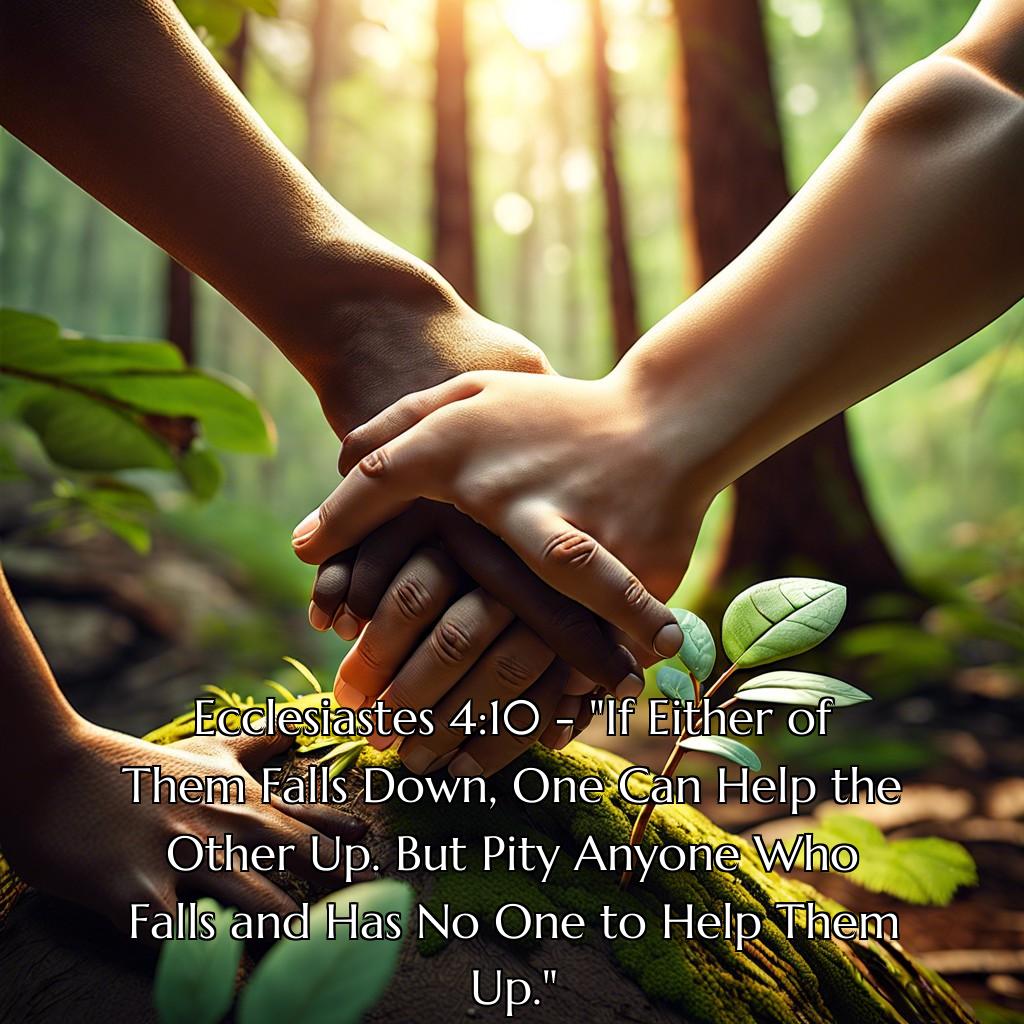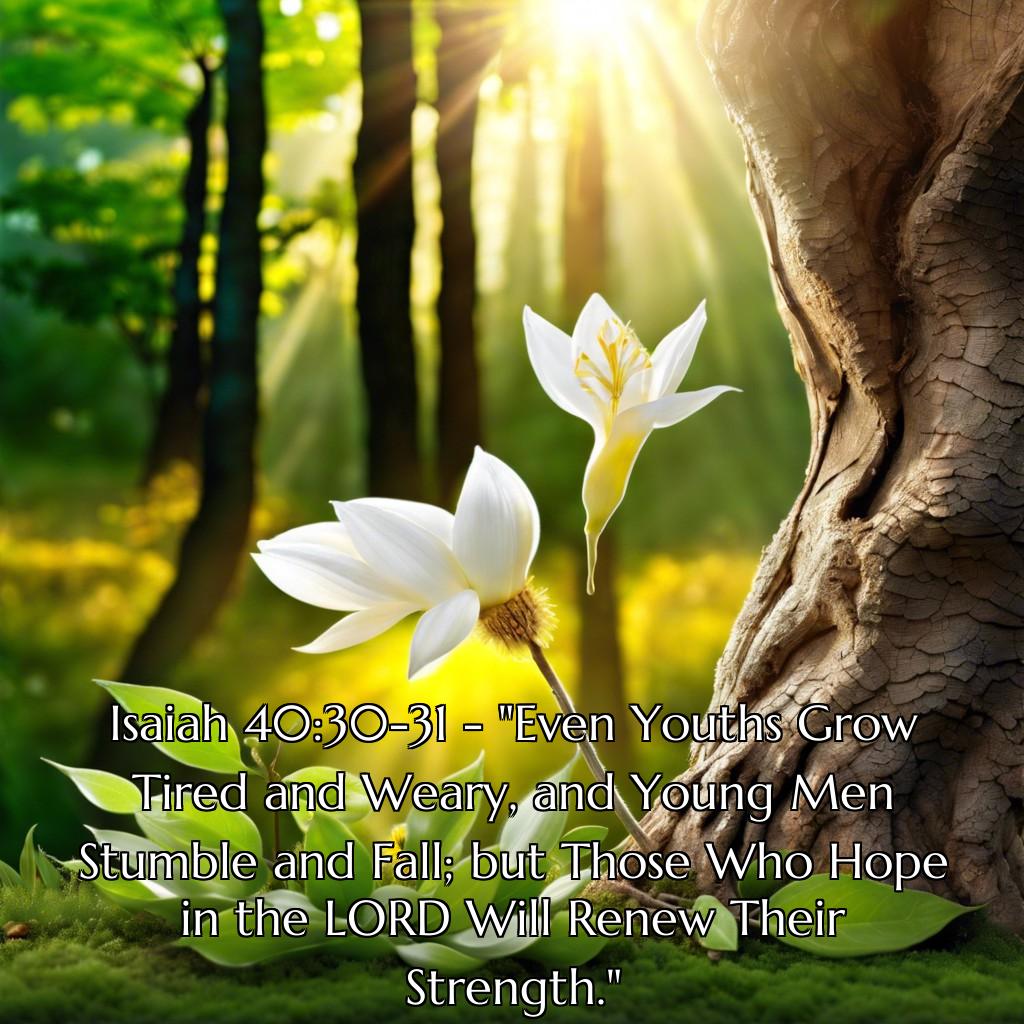This article explains the meaning of 10 Bible verses about fall, helping you understand their messages on change, growth, and grace.
Finding solace and guidance in times of struggle can often be a spiritual journey that resonates deeply with the teachings of the Bible. Whether you’re looking for verses that reflect the nature of human fallibility or seeking reminders of divine support after a fall, this collection covers it all. Dive into these powerful scriptures to uncover meanings that inspire resilience, repentance, and hope.
Romans 3:23 – “For All Have Sinned and Fall Short of the Glory of God.”

Sin is an unavoidable part of human nature, and this verse emphasizes that everyone, without exception, falls short of God’s glory.
- Understanding the concept of sin:
- Sin means missing the mark or failing to meet God’s standards.
- Everyone is guilty of sin, highlighting our need for forgiveness and redemption.
- Glory of God:
- Refers to God’s perfect holiness and righteousness.
- Our failure to achieve this glory shows the vast difference between human imperfection and divine perfection.
- Implications for believers:
- Acknowledging this truth can foster humility and empathy.
- Encourages a reliance on God’s grace and mercy rather than on personal merit.
Reflecting on this verse helps deepen our spiritual lives and reaffirms the need for a savior.
Proverbs 24:16 – “For Though the Righteous Fall Seven Times, They Rise Again, but the Wicked Stumble When Calamity Strikes.”

This verse highlights resilience and the stark difference between the righteous and the wicked. Even when the righteous face repeated failures or obstacles, they possess an inner strength that helps them rise each time. This resilience stems from their faith and reliance on God. In contrast, those who are wicked lack this foundational support, making them prone to ultimate downfall when adversity strikes.
- Key points to consider:
- The “seven times” symbolizes completion or perfection, emphasizing that no matter how often the righteous fall, they continue to rise.
- Resilience is a defining trait of the righteous, fueled by their hope and faith in God.
- The wicked, lacking a spiritual foundation, falter permanently under pressure.
- Adversities test righteousness but also provide opportunities for growth and reaffirmation of faith.
Ecclesiastes 4:10 – “If Either of Them Falls Down, One Can Help the Other Up. But Pity Anyone Who Falls and Has No One to Help Them Up.”

This verse highlights the importance of companionship and community. Life is full of challenges, and we all experience moments when we stumble. Having someone to support and lift us when we fall is invaluable.
- Mutual Support: Relationships are designed for mutual aid. When one person falters, the other can provide the support needed to stand again.
- The Value of Community: Being part of a community means you won’t be alone in your struggles. Community offers a safety net.
- Pity the Lonely: Life’s hardships are harder to bear alone. Isolation can exacerbate the pain of failure.
Helping one another is not just a kindness; it’s a necessity for resilience in life’s ups and downs. Reaching out for help and being there for others creates a strong, supportive network that can withstand any fall.
2 Corinthians 4:9 – “Persecuted, but Not Abandoned; Struck Down, but Not Destroyed.”

This verse from 2 Corinthians reassures us that even when we face severe trials, God’s presence and support remain constant. Here are some points to consider:
– Persecuted, but not abandoned: We may face hostility or rejection for our beliefs, yet God never leaves us alone. His companionship endures through all hardships.
– Struck down, but not destroyed: Life’s challenges can knock us down, but they don’t have the power to defeat us completely. God’s strength sustains us.
– This duality highlights resilience: No matter the severity of our suffering, having faith means we are not ultimately broken.
– Encouragement in adversity: Identifying with this message can help believers find solace and strength during their lowest points.
Contemplating these aspects can enrich our understanding of persistence through faith amidst life’s adversities.
Psalm 37:24 – “Though He May Stumble, He Will Not Fall, for the LORD Upholds Him With His Hand.”

Stumbling is part of the human experience. This verse reassures us of God’s unwavering support.
- God’s support: Even when we make mistakes or face challenges, we won’t be left to fall into despair. The LORD is always there to support us.
- Assurance of care: Imagine a loving parent holding a child’s hand. It’s a comforting reminder that you are never alone.
- Building resilience: When we stumble, it builds our strength and character. God’s hand helps us get back up, ready to continue our journey.
- A gentle reminder: This verse comforts us in knowing that while we may face temporary setbacks, they do not define us. God’s hand steadies and sustains us.
These points offer a deeper understanding of how this scripture applies to life, making the divine support tangible and relatable.
Micah 7:8 – “Do Not Gloat Over Me, My Enemy! Though I Have Fallen, I Will Rise. Though I Sit in Darkness, the LORD Will Be My Light.”

Micah 7:8 is a powerful reminder of resilience and divine faithfulness. Here are key aspects to consider:
- Enemies Do Not Have the Final Say: No matter the gloating of adversaries, they cannot dictate your destiny.
- Resilience Through Faith: Falling is not the end. You will rise again through strength provided by faith.
- Divine Light in Darkness: Even when surrounded by darkness, God’s light will guide you and bring hope.
- Overcoming Defeat: This verse promises that setbacks are temporary, emphasizing the victory that comes through God’s support.
These points highlight the profound encouragement and assurance found in this scripture.
Isaiah 40:30-31 – “Even Youths Grow Tired and Weary, and Young Men Stumble and Fall; but Those Who Hope in the LORD Will Renew Their Strength.”

Isaiah beautifully acknowledges humanity’s limitations. Even the strongest among us—youths and young men—eventually tire and stumble. It’s a universal experience emphasizing our innate frailty.
This verse offers hope. The key lies in trusting the Lord. Those who place their hope in God receive renewed strength. It’s not about never failing but about finding a source of power beyond ourselves.
- Key points to consider:
- Human strength is limited, no matter how capable we feel.
- Trusting in God provides an inexhaustible source of renewal.
- Renewal includes a fresh perspective, vigor, and motivation.
- This promise of strength is available to everyone, highlighting inclusivity.
1 Corinthians 10:12 – “So, If You Think You Are Standing Firm, Be Careful That You Don’t Fall!”

Overconfidence can be a serious spiritual pitfall. This verse is a gentle yet powerful reminder that feeling spiritually secure doesn’t automatically guarantee you’re immune to falling. Remaining vigilant is crucial.
Self-awareness is a recurring theme in our walk with God. It’s easy to assume that a strong relationship with God will protect us from mistakes. However, this can lead to complacency. Always evaluating your actions and thoughts helps maintain a humble heart and a clear mind.
Accountability plays a significant role in preventing a fall. Surrounding yourself with a supportive community encourages you to stay grounded. This mutual support and encouragement help keep us on track and resilient against temptations.
Ultimately, humility is key. Recognizing that strength comes from God, not ourselves, helps us stay humble and vigilant. Our reliance on God’s strength and wisdom safeguards us against the pride that precedes a fall.
James 1:2-3 – “Consider It Pure Joy, My Brothers and Sisters, Whenever You Face Trials of Many Kinds, Because You Know That the Testing of Your Faith Produces Perseverance.”

Navigating life’s difficulties with joy seems counterintuitive, yet James offers a profound perspective on trials.
Trials come in many forms. Often, they challenge our comfort and provoke introspection.
They test our faith. Such testing isn’t to break us but to strengthen our resolve and deepen our reliance on God.
Endurance and perseverance grow. Facing and overcoming trials build spiritual muscles, preparing us for future challenges.
Rejoicing in trials aligns us with a divine outlook. This joy isn’t about the pain but about the growth and intimacy with God that results.
Remember, it’s not the trial itself that’s joyful, but what it produces: a resilient, steadfast faith.





